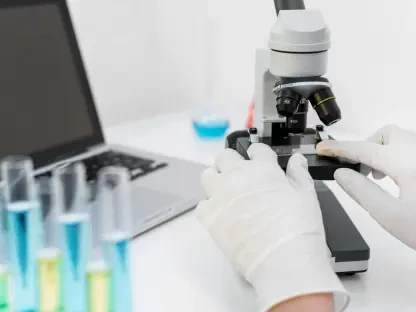What happens when countless families struggle to find affordable, effective therapy for children with autism, facing costs exceeding $50,000 a year and waitlists that stretch endlessly? A Virginia-based company, Positive Development, steps in with a transformative solution, backed by a staggering $51.5 million in Series C funding. This investment, announced in 2025, marks a pivotal moment in autism care, promising a shift toward personalized, relationship-driven therapy that could redefine support for thousands across the U.S. The story of this funding isn’t just about numbers—it’s about hope, innovation, and a desperate need for change in a system that often leaves families behind.
Why This $51.5M Investment Is a Game-Changer
The sheer scale of the $51.5 million raised by Positive Development underscores a critical turning point in addressing autism care challenges. With total funding now surpassing $100 million, the company is poised to tackle the skyrocketing demand for therapy as autism diagnoses affect approximately one in 31 children in the U.S. This capital injection, co-led by aMoon, B Capital, and Flare Capital Partners, isn’t merely financial backing—it’s a vote of confidence in a model that prioritizes family connections over traditional methods.
Beyond the numbers, this investment highlights a glaring gap in the current landscape. Traditional Applied Behavior Analysis (ABA) therapy, while widely used, often comes with prohibitive costs and a focus on behavior modification that doesn’t suit every child or family. Positive Development’s approach offers a fresh alternative, aiming to make therapy not just accessible but also deeply personal, setting the stage for a broader impact on how autism support is delivered nationwide.
Addressing a Rising Need for Better Autism Solutions
The urgency for innovative autism therapy has never been more apparent, with diagnosis rates climbing and families grappling with limited options. Many parents face the harsh reality of annual therapy expenses that rival the cost of a new car, coupled with wait times that delay critical early interventions. This growing crisis has left a void that traditional models struggle to fill, often prioritizing rigid frameworks over individual needs.
Positive Development enters this space with its Developmental Relationship-Based Intervention (DRBI) model, a method that stands in stark contrast to ABA by focusing on natural development through trusting family bonds. By coaching parents to foster gentle, meaningful interactions, the company seeks to enhance communication and emotional growth in children, addressing both the clinical shortcomings and economic barriers that define today’s autism care challenges.
Inside Positive Development’s Bold Vision and Plan
At the heart of Positive Development’s strategy lies a multi-faceted approach to revolutionize autism therapy, fueled by the recent $51.5 million funding. The DRBI model emphasizes tailored care plans that integrate in-home and in-center services, supported by dedicated clinical and parent teams. Unlike conventional methods, this approach empowers families to play a central role in their child’s progress, focusing on problem-solving and emotional regulation through everyday interactions.
Expansion is another cornerstone of the plan, with the company already operating in seven states, including California and Texas, and aiming to reach five to ten more by 2027. Strategic partnerships with major insurers like Aetna and UnitedHealthcare enhance accessibility, while investments in technology and value-based payment models with health plans and Medicaid aim to ensure scalability. This comprehensive roadmap reflects a commitment to affordability and systemic change, positioning the company as a leader in reshaping autism support.
Investor and Leadership Optimism Fuels Momentum
Confidence in Positive Development’s mission radiates from both its investors and internal leaders, painting a picture of unified belief in its potential. Dr. Tomer Berkovitz of aMoon, a key player in the funding round, praises the company’s ability to “transform healthcare by improving outcomes and reducing costs,” reflecting a shared vision among backers like B Capital and Flare Capital Partners. Such endorsements signal strong industry support for innovative care models that challenge the status quo.
Echoing this sentiment, co-founder and CEO Mike Suiters underscores the importance of offering a relationship-driven alternative to ABA, emphasizing accessibility for families nationwide. This alignment between financial backers and company leadership points to a broader movement within healthcare, one that values real impact over traditional metrics, and sets a promising tone for the company’s future endeavors.
What Families Can Expect from This Growth
For parents navigating the complexities of autism therapy, Positive Development’s expansion brings tangible possibilities. Families in states like California, Oklahoma, and Illinois can already access personalized DRBI-based services that prioritize engagement over strict behavioral goals. For those in areas targeted for expansion, staying informed about upcoming announcements over the next few years could open new doors to much-needed support.
The company’s focus on insurer partnerships and value-based care also hints at potential cost reductions compared to the steep prices of traditional therapies. Parents are encouraged to reach out to support teams to explore how customized care plans might address their child’s unique needs. This shift toward family-centered, accessible autism care offers a glimmer of relief in a landscape often defined by frustration and financial strain.
Reflecting on a Milestone for Autism Support
Looking back, the $51.5 million funding secured by Positive Development stood as a beacon of progress in a field desperate for innovation. It marked a moment when the autism care landscape began to pivot toward solutions that valued relationships as much as results. The company’s commitment to expanding access and affordability through strategic growth and partnerships laid a foundation for lasting change.
For families who had long faced barriers to effective therapy, this development offered a practical path forward. Engaging with local resources, monitoring expansion updates, and exploring tailored care options became critical next steps. Beyond immediate actions, the broader implication was clear: a future where autism support prioritized individual needs and family bonds had moved closer to reality, inspiring hope for systemic transformation in the years that followed.









